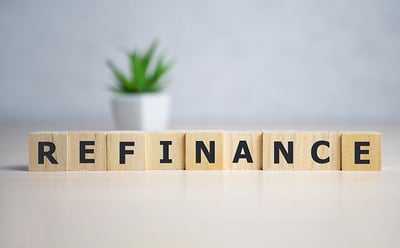Page 43 421 - 430 of 537
How to Invest in Student Housing

Student housing is prevalent in pretty much all college towns across the country, but a frequent question we get is how to get started investing in student housing.
Passive Income Rental Property: The 3 Things You Need to Know

Rental property can be a great way to make passive income — when you know what you’re doing. However, like with any investment, there’s potential risk.
Refinancing a Rental Property

When interest rates drop, many homeowners decide to refinance their home loans to take advantage of lower mortgage interest rates. A slight decrease can make a big difference in the monthly payment and the amount you pay over a loan's life. As an investment property owner, you may hope to do the same. While it isn't as easy to refinance a rental property as it is an owner-occupied home, you can do it, and it may be well worth the effort.
How To Transfer Ownership Of Real Estate Property

Real estate can be a terrific investment. As an alternative investment asset, it can help diversify a portfolio. And, depending on the asset class, type, location, and other factors, it can appreciate in value, while offering a steady rate of return.
Where Do I Invest in Student Housing?

Student’s often live off-campus, and their housing has the potential to be lucrative in many situations. So, where do you invest in student housing, and how can you ensure you are finding the best investment opportunity for you?
How to Sell a Shared Ownership Property

If you’ve been paying attention to our blogs, you know that we have written extensively about the benefits of real estate fractional-share ownership, such as the type offered through Delaware Statutory Trusts (DSTs).
How to Calculate Mortgage Interest and Payments

Paying your mortgage is usually priority number one for a consumer, as it should be. For people at the beginning of building a real estate portfolio or accumulating assets of any type, that first property is the foundation. Billionaire Andrew Carnegie is known for having said that 90% of millionaires got their start in real estate. Many got their first properties by buying a home and used their equity to finance additional purchases.
How to File Rental Property Depreciation

Buildings wear through normal use. It’s part of the old saying — nothing lasts forever. The IRS provides real estate investors with a tax benefit for the wear on their buildings. This tax benefit is called depreciation. Depreciation is a reduction in the value of an asset over time due to wear and tear.
What is a Good Interest Rate on a Mortgage?

The question about mortgage interest rates is anything but simple. The interest rate that you pay for a mortgage is affected by market factors and the details of your financial situation, in addition to the purpose of the mortgage.
How To Calculate Adjusted Basis Of Rental Property

Understanding how to calculate the adjusted cost basis of a rental property is essential to accurately determine its value and potential profits from a sale. Also, the adjusted basis isn't the same as the basis. Once you finish reading this article, you should understand the difference between these two terms and be able to work through calculating the adjusted basis.
Page 43 421 - 430 of 537


